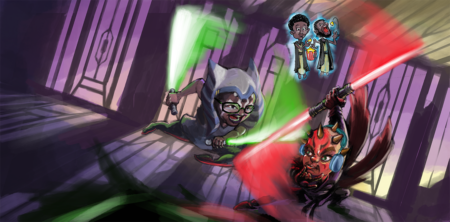Belief is personal, and to some degree irrelevant. Whether or not you are convinced that Michael Jackson abused children, based on what we know, have learned, and what’s been alleged, is personal and unique to you. You will reach the conclusion you want to reach no matter what. And that is also largely irrelevant as to whether or not children were, in fact, abused. No one but the small number of people who were either victims or helped cover it up can truly know.
Right now, as before, defenders wave the banner of legacy. They allege that claims of child sex abuse are being manufactured to attack the legacy of Michael Jackson.
This isn’t a concern completely without merit, but it’s being used in a selective manner, to brush aside legitimate concerns. The idea that Michael Jackson abused several children – using the very foundation of his legacy do so – is also not without merit. There are a lot of reasons to at least ask.
And if we want to unpack his legacy, we need to first center Michael Jackson as a man. He was a uniquely talented, beloved, super star who had an unprecedented career as an entertainer. But he was a man.
And so consideration of his legacy, for me, must include the manufacturing of a child star. This includes the neglect and abuse that comes with child stardom, committed by adults and lots of other adults almost solely for fame and fortune. It must include a consideration of decades of bizarre and unacceptable behavior that the public accepted because he was an entertainer.
The consideration of his legacy must include race. And his selective use of race.
Even if you do not believe that anything sexual occurred between Michael Jackson and a child, the consideration of his legacy must include his relationships with children as described by him. And as described by him, these relationships were at best problematic and in my eyes, manipulative and abusive. The way he burrowed into the lives of children, made key decisions for them, came to play a role those children relied on, gave them years and years of intense and intimate attention (hours of daily conversation, money, trips, sleeping alone in his bed) – only to cast them aside when a new young “best friend” appeared and without explanation – is unacceptable. Every parent and adult who witnessed this behavior should have objected and put a stop to it.
That behavior, whether it was in the service of inappropriate sexual relationships or not, is also now part of his legacy.
I for one am convinced that Michael Jackson sexually abused young boys. As a survivor of abuse and a professional who represents children who have been abused, his behavior fits everything I know about grooming and trauma bonding. But I have no choice but to accept that millions of people aren’t convinced.
You will listen to his music. Watch his videos. He will continue to mean what he meant to you. Or not. Sadly, we will probably not even be talking about this by April.
The only value in this conversation is acknowledging what we turned a blind eye to and why we did it. And then we need to ask ourselves if we continue to turn a blind eye in a way that harms children.
These are the crucial questions that are lost in the “did he or didn’t he” debate: how do we keep kids safe? How do we create space for people to heal? And how do we do these things in our lives, with people we know and love?






Well said